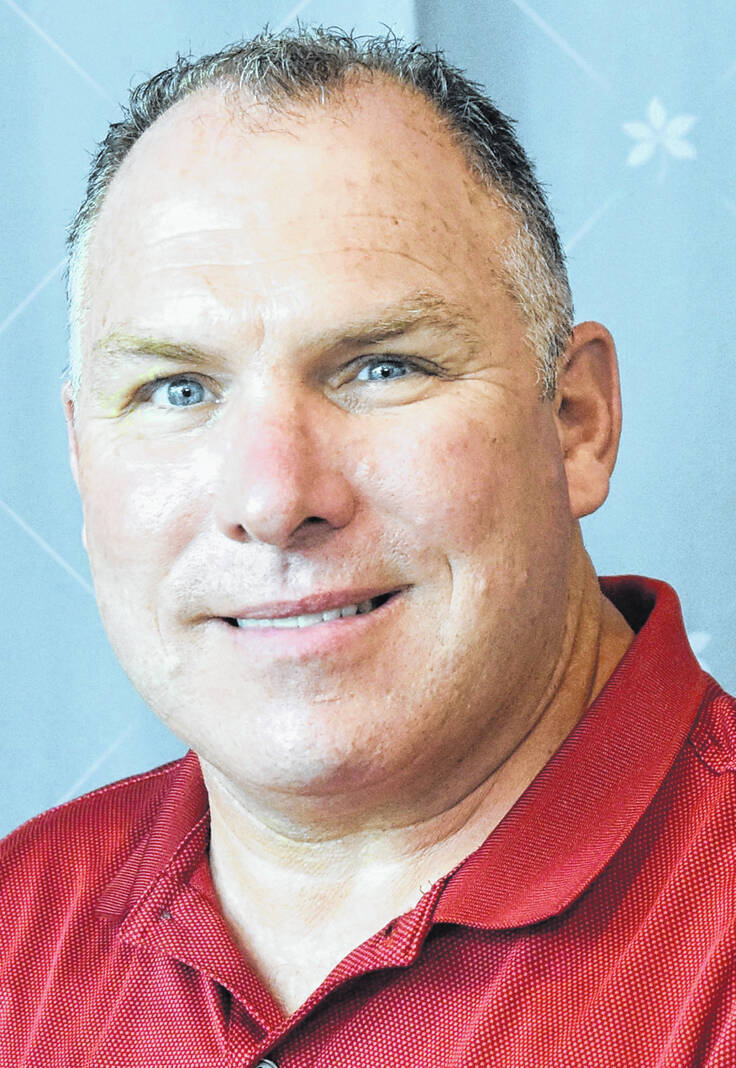
WASHINGTON COURT HOUSE – In professions such as lawyers, teachers, firefighters, nurses, doctors, paramedics, farmers, and agri-business professionals, all are required to have some form of license. When a license or certificate is required by a profession, there are always continuing education credits required of the individual before that license or certificate can be renewed.
Teachers, for example, are required to attend college classes or have attended professional development workshops to renew their teaching license every five years. Paramedics must complete several hours of continuing education credits in a variety of different life-saving categories every two years.
Agricultural careers are no different. In agriculture we have Private and Commercial Pesticide licenses, Private and Commercial Fertilizer Certificates, Certified Crop Advisors, Quality Assurance Certificates for Beef and Swine producers, and even a Livestock Mortality Certificate to compost dead animals on larger livestock farms. We even require our 4-H and FFA students, who are 9 years of age and older, to attend Quality Assurance Training each year to show animals at county, state, or national livestock shows.
So how does a farmer receive continuing education credits that are needed for a particular license renewal? That depends on the license they are required to renew. For example, the most common license for Fayette County farmers is the Private or Commercial Pesticide Applicators license. To initially receive this license an individual is required to take a test that is conducted by the Ohio Department of Agriculture. These tests are given pretty much every day at some locations around Ohio.
The Fayette County Extension office is a testing site once a month for these tests. There are different categories on the pesticide licenses based on what type of crop the individual is planning to apply the chemicals. All individuals must pass the Core test and then at least one other category.
Most row crop farmers take the Core test (safety and general knowledge of applying chemicals), Category 1 (grain and cereal crops), Category 2 (forage crops and livestock), and/or Category 6 (fumigation). However, in Fayette County, we do have some farmers with Category 3 (fruit and vegetable crops), Category 4 (nursery and forest crops), and Category 5 (greenhouse crops).
There are related categories for the commercial license which is for individuals applying chemicals for others and applying chemicals on public properties. The private and commercial licenses do require the license holder to receive continuing education credits every three years to renew their license. Private applicators can renew their license every three years, but commercial license holders must renew their licenses yearly. Commercial license holders do have three years to obtain their license credits for renewal even though they are paying a renewal fee each year.
So how do farmers, agri-business people, and commercial license holders receive their needed credits? This is where the Ohio State University Extension can help. We offer educational programs for farmers to receive their needed credits to renew their various types of licenses. These educational events can be indoor programs or even outside, field day-type events.
On Monday, Feb. 27 from 1-4 p.m., there will be a New Fertilizer Certification class being taught at the Fayette County Extension Office for producers needing to receive their fertilizer certification for the first time. Any producer applying fertilizer to more than 50 acres is encouraged to get their fertilizer certification. The cost of this class is $30, and you can call 740-335-1150 to register.
On March 1 at the Mahan Building on the Fayette County Fairgrounds, Valero Renewables of Bloomingburg will be hosting an Agriculture Safety Training from 8 a.m. – 12 p.m. and a First Responders Training from 1-5 p.m. Workman’s comp credits will be available as well as first responder credits. To register and find out more details go to go.osu.edu/valerosafetyday.
OSU Extension invites crop producers, Certified Crop Advisors, and agribusinesses to attend a regional 2023 Ohio Weed University on Wednesday, March 1, or Friday, March 3 from 9 a.m. to 4 p.m. at locations across the state.
Locations will include:
March 1 – Highland County, Knox County, and Mercer County
March 3 – Clinton County, Paulding County, and Tuscarawas County
This program is designed to keep agronomic producers on the cutting edge in weed control for their cropping operations. Topics addressed will include hot topics in weed control, local weed issues, biology, identification of weeds, control strategies, cover crop management in forages, and evaluating herbicides. Hands-on exercises will be included.
Featured speakers will include Dr. Aaron Hager, Associate Professor, Department of Crop Sciences, University of Illinois; Dr. Patrick Tranel, Professor, Weed Science, University of Illinois; Dr. Alyssa Essman, visiting Professor and acting State Weed Specialist, The Ohio State University; and, Tony Dobbels, Research Specialist, The Ohio State University. This is an “in-person” event with a portion of the program being conducted virtually at the above locations.
The registration fee per person is $40 and is due by Feb. 22. This fee includes course materials and speaker question and answer sessions. Thanks to Ohio Corn and Wheat Growers for sponsoring this program. Go to go.osu.edu/23clintonweeds for more information and registration. On-site walk-ins are not available for this event. Commercial Pesticide and Certified Crop Advisor (CCA) credits will be available.
A Cover Crop Symposium will be held on Wednesday, March 8 from 6:30-8:30 p.m. in the McCoy Meeting Room (Kelly Center) on the Wilmington College Campus. The keynote speaker will be Roger Wenning, Decatur County, Indiana. A panel consisting of Geoff Mavis, Fayette County, Ralph Stonerock, Union County, Davis Gruenbaum, Union County, and Matt Burkholder, Allen County will also be included in the program. This program is free, but registration is required. To register, visit warrenswcd.com or contact the Clinton, Warren, or Greene County Soil and Water Conservation Districts.
Ken Ford is the OSU Extension Agriculture and Nature Resources Educator in Fayette County.

